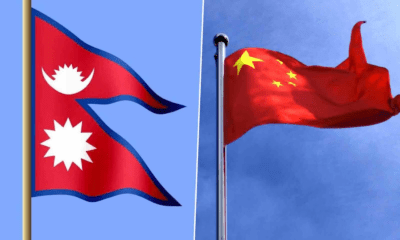China’s flagship initiative, the Belt and Road Initiative has been a serious thorn in Nepal’s domestic as well as international politics. Many have contested the situation in which Katmandu will have to undertake huge financial loans due to its acceptance of the terms that these projects inculcated within them. Although Beijing-Katmandu relations have grown cordial over the past few years, analysts have asked for greater caution from Nepal in accepting Chinese finances. Instances of Beijing leveraging its economic stronghold over countries behest the BRI has raised significant concern within the strategic communities in smaller states such as Nepal.
Even though Nepal and China signed a MoU in 2017 for the BRI framework, no project has yet been completed under the initiative. Yet, Chinese officials have spared no means to project non-BRI projects as those as part of China’s flagship initiative. Matters began worsening when the Chinese ambassador began terming non-BRI projects as those that were under the ambit of the flagship initiative, leaving Nepali authorities perplexed and confused.
Moreover, feasibility studies conducted to ascertain the benefits of the BRI program in Nepal have revealed the adverse impact it could have upon the Nepali economy. By intaking the large economic package, Nepal is sure to suffer a similar fate as those faced by other developing countries in its own neighbourhood. Such studies have not only flagged the economic impact but have also raised concerns on the political instability such agreements bring within themselves. However, with the lack of a funding modality in the BRI agreement signed in 2017, the BRI has remained in a limbo, provoking frustration on both sides. The talks for a Free Trade Agreement under the ambit of the BRI too has found very little buyers in Nepal’s strategic community.
Reports of Nepali official seeking grants instead of soft loans for development projects have further delayed any implementation of the projects. However, in the wider interest of the Nepali citizens, it is best that the government persists on receiving grants rather than loans that could stifle the country’s economy. The enhancing of the bi-lateral engagement is also not helped with the fact that Nepal faces a hefty $ 1.84 billion trade deficit with China which is only expected to increase in the coming years. Furthermore, on the political front, China’s latest ‘standard map’ dismissed the existence of Nepal’s newly released political map from 2020.
Among these tussles, the Pokhara airport remains to be the most intriguing one. Although the Pokhara International Airport was built on a Chinese loan, it was not officially designated to be as part of the BRI. Even after Beijing’s consistent insistences, Nepal did not seem to budge. Interestingly, days before the inauguration of the airport, Beijing’s officials falsely claimed the Pokhara International Airport as a flagship project under the Belt and Road Initiative. To worsen the situation, investigations conducted by news agencies revealed malpractices by a Chinese firm contracted for the construction of the airport.
All these turbulences have eventually led to the rise of anti-China sentiments in the country. Activist groups protesting against China’s expansionist tactics have also seen a significant rise over the past few months. Moreover, the Chinese Ambassador too has been facing the heat in Nepal due to his comments on the country’s internal politics as well Kathmandu’s relations with India. Thus, with the growing sense of China’s imperialistic tendencies, local population are asserting caution in their dealings with Chinese businesses.
It is high time Kathmandu realises the pitfalls of forging greater relations with Beijing especially when other South Asian countries have already faced the consequences of such tactics. Above and over from restricting ties, Nepal must also focus on reducing its growing economic dependence on China, which is showcasing an increasing trend. As far as the BRI is concerned in the country, Nepal should remain committed to safeguarding the country’s priorities first, than seeking economic deals that are detrimental to its long-term interests. Although no tangible outcome has been achieved yet, Kathmandu must ensure that all important stakeholders are taken into consideration during the agreement phase of any project that is decided to be worked upon. Trends of the lacklustre nature of Chinese businesses also calls for serious reconsideration regarding the granting of projects to such firms. This will not only call for greater Nepali labour force participation but will also promote local businesses too instead of relying upon Chinese firms. In conclusion, Kathmandu’s political representatives need to seriously reconsider if the country’s inclusion into the BRI would eventually, whenever it fructifies, bring any tangible or political benefits, or if it would isolate Nepal further away from the global arena.

Leave a Reply